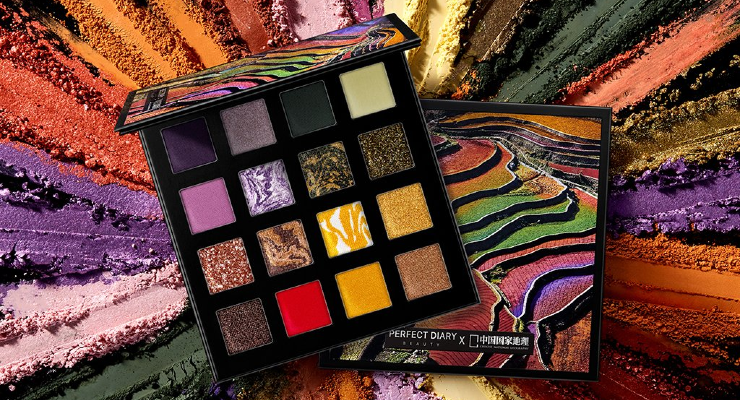Beauty Packaging Staff08.17.20
Perfect Diary, the Chinese online makeup brand, is in talks to raise between $100 million and $200 million from potential investors, including Warburg Pincus, TPG Capital and Blackstone Group, as well as existing investors such as Hopu Management Investments and Boyu Capital.
The talks are ongoing and have not been finalized and details may still change, but if successful, the investment would double the startup’s valuation to $4 billion from $2 billion. The company declined to comment.
The State of China’s Cosmetics Market
Competition is getting fierce in China’s cosmetics market. With China emerging as one of the largest economies to begin recovering from the coronavirus pandemic, global brands are relying even more on Chinese consumers to prop up sales.
Research consultancy Gartner said in a June report that Chinese consumers have become more nationalistic and health conscious since the outbreak of Covid-19. Domestic brands such as Perfect Diary “flourished during the pandemic, releasing low cost, high value, viral products driven by social media in the middle of the lockdown,” the report said.
Meanwhile, richer and younger Chinese consumers are shifting their spending away from foreign brands in several categories including cosmetics, according to a report by online retailer JD.com.
Perfect Diary is part of a trend of China’s homegrown consumer brands looking to displace traditional retailers and foreign brands. The Guangzhou-based startup is leveraging Chinese social networks such as WeChat and ByteDance’s Douyin video app, as well as e-commerce platforms such as Alibaba’s Tmall, to mount a challenge against more established foreign rivals such as Chanel or Estee Lauder.
China’s cosmetics sales fell 80% in February at the height of lockdown, but by March the year-on-year decline was only 20%, according to McKinsey. Online sales actually grew between 20% to 30%, the consultancy said, especially for eye makeup.
Furthermore, the company’s volume of sales in the first half of this year increased 70% compared to the first half of 2019. Investors expect the company’s sales to have a big bump later this year. Online cosmetic sales in China are usually much bigger in the second half of the year due to the Nov. 11 online shopping festival and other events.
The talks are ongoing and have not been finalized and details may still change, but if successful, the investment would double the startup’s valuation to $4 billion from $2 billion. The company declined to comment.
The State of China’s Cosmetics Market
Competition is getting fierce in China’s cosmetics market. With China emerging as one of the largest economies to begin recovering from the coronavirus pandemic, global brands are relying even more on Chinese consumers to prop up sales.
Research consultancy Gartner said in a June report that Chinese consumers have become more nationalistic and health conscious since the outbreak of Covid-19. Domestic brands such as Perfect Diary “flourished during the pandemic, releasing low cost, high value, viral products driven by social media in the middle of the lockdown,” the report said.
Meanwhile, richer and younger Chinese consumers are shifting their spending away from foreign brands in several categories including cosmetics, according to a report by online retailer JD.com.
Perfect Diary is part of a trend of China’s homegrown consumer brands looking to displace traditional retailers and foreign brands. The Guangzhou-based startup is leveraging Chinese social networks such as WeChat and ByteDance’s Douyin video app, as well as e-commerce platforms such as Alibaba’s Tmall, to mount a challenge against more established foreign rivals such as Chanel or Estee Lauder.
China’s cosmetics sales fell 80% in February at the height of lockdown, but by March the year-on-year decline was only 20%, according to McKinsey. Online sales actually grew between 20% to 30%, the consultancy said, especially for eye makeup.
Furthermore, the company’s volume of sales in the first half of this year increased 70% compared to the first half of 2019. Investors expect the company’s sales to have a big bump later this year. Online cosmetic sales in China are usually much bigger in the second half of the year due to the Nov. 11 online shopping festival and other events.




























